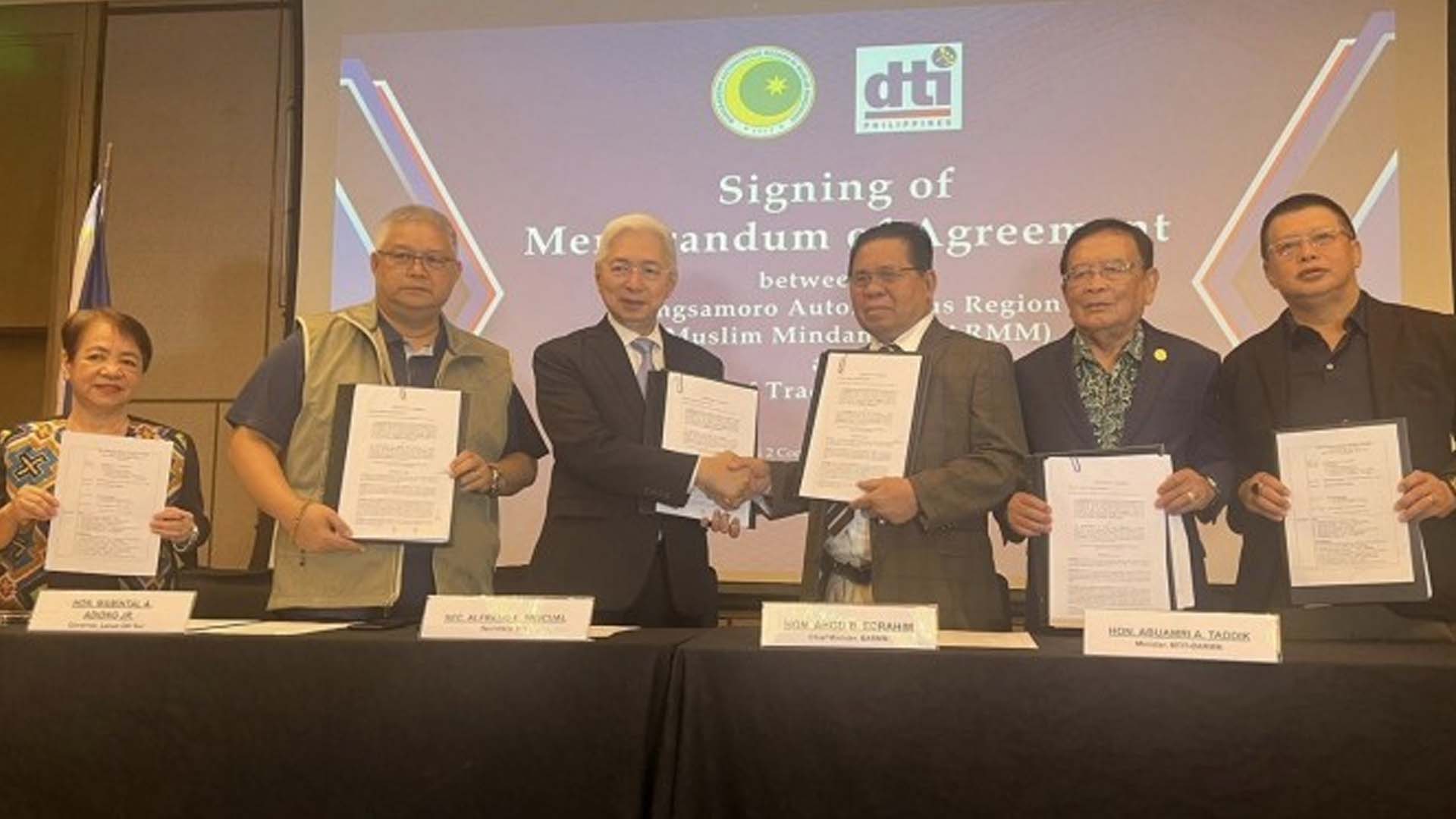The Department of Trade and Industry and the Bangsamoro Autonomous Region in Muslim Mindanao (BARMM) Ministry of Trade, Investments and Tourism signed a memorandum of agreement on Thursday for Phase 2 of the Task Force Bangon Marawi project.
In a press briefing here, DTI Secretary Alfredo Pascual said the partnership will enable to create a positive and lasting impact in the community rebuilding in the city of Marawi.
“And now, I profoundly express my unwavering commitment to implementing the Task Force Bangon Marawi Phase 2 Project solely dedicated to carrying out comprehensive programs for the continuous revival of the Marawi City economy,” Pascual said.
During the Task Force Bangon Marawi Phase 1 Project, DTI provided livelihood starter kits, established Shared Service Facilities (SSFs), and facilitated retail spaces for Maranao products that have benefited Internally Displaced Persons (IDPs).
“They have a requirement to comply like they must have their small business, and we’ll bring them together to form them a cooperative,” he added.
According to the DTI chief, the primary goals under the Phase 2 project are to create jobs through social entrepreneurship and local tourism. This entails the training of entrepreneurs, promotion of local halal products and services of micro, small and medium enterprises (MSMEs) and restore the creative sector.
With a budget of PHP66 million from the national government for this year Pascual said the project will serve as a vehicle for change for the people of Marawi and its adjacent communities.
“The MOA we signed today formalizes our partnership in creating a positive and lasting impact in the community as we work together for economic growth and development, specifically by developing businesses and the local halal industry,” he pointed out.
In an interview with Philippine News Agency, Lanao del Sur Governor Mamintal Adiong Jr. described the project as “very timely as the people of Marawi are back on their feet since they are in the process of rebuilding their homes and businesses.”
“We are very grateful because the program can help our handicraft industry. Of the PHP66 million budget we asked a portion of it for us to buy equipment for our [handicraft] livelihood,” he added.
Local halal industry
The MOA signed by DTI and BARMM through its MTIT also formalized partnership for economic growth and development, specifically by developing businesses and the local halal industry. Pascual said the promotion and development of the Philippine Halal industry is mandated by law (Republic Act No. 9997) for the utmost benefit of Muslim Filipinos.
“This would also open more business opportunities for our Muslim brothers and sisters to address the needs of the USD 2.3 trillion market of the global halal food industry. Acquiring even a tiny bit of this cake – let’s say 0.1 percent, or USD 2.3 billion to USD 3.4 billion – would still greatly contribute to the country’s economic recovery and growth,” he explained.
For his part, BARMM Chief Minister Ahod Ebrahim expressed optimism that the agreement will advance economic development in the region and generate higher income and higher quality employment for the people of Mindanao.
The partnership aims to assist more than 100 MSMEs, which shall be empowered through capacity building, business counseling, and mentorship leading as Halal practitioners.
“Let’s work together to improve the lives of the Bangsamoro by providing them with access to Halal industry, livelihood, entrepreneurship, investment, financial literacy, marketing access, and other services required for business establishment, efficiency and sustainability of business operations, effective business management, and product and service improvement,” Ebrahim said. (PNA)








